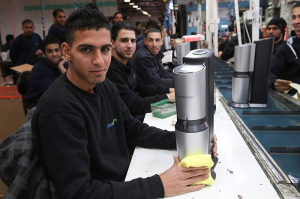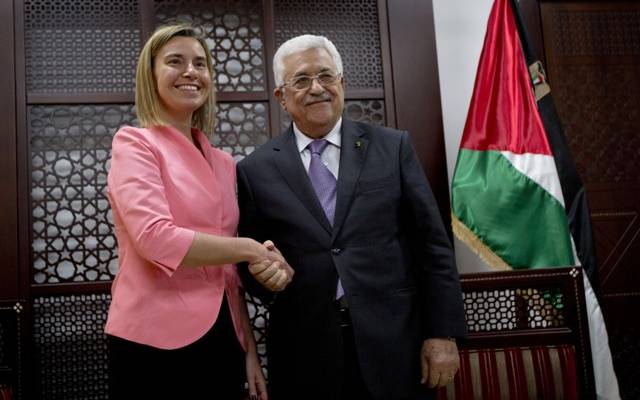
Prime Minister Benjamin Netanyahu (Cliff Owen/AP)
It is very surprising that in these times of extreme turmoil and instability in the Middle East while Israel is targeted by a wave of terrorism, the EU finds it appropriate to adopt highly political and controversial one-sided guidelines targeting Israel, the only stable democracy in the region.
On September 10, 2015, the European Parliament voted overwhelmingly to support a motion to adopt “guidelines on the labeling of Israeli settlement produce” – from those areas which came under Israeli control as a result of the 1967 Six Day War, the Ministry of Foreign Affairs stated.
To this, Prime Minister Netanyahu responded: “This is unjust. It is simply a distortion of justice and of logic and I think that it also hurts peace; it does not advance peace. The root of the conflict is not the territories, and the root of the conflict is not the settlements. We have historical memory of what happened when Europe labeled Jewish products.”
In the coming days, these guidelines are expected to become the operative policy of the European Commission.
Whereas the upcoming labeling guidelines are presented by the European Union (EU) as a purely “technical measure” designed to protect European consumers, there is no doubt that the main purpose of the measure is to exert political pressure upon Israel. As the preparation of the labeling guidelines has been pending for more than three years, the recent steps beg the question why the EU decided that it should be done now.
These measures are discriminatory in nature. It is intolerable that Israel is the only country that has been singled out by the EU for such a policy, despite the fact that there are over 200 disputed territories worldwide.
The labeling guidelines initiative is being promoted by anti-Israel organizations, and not by European consumers-protection organizations. The labeling guidelines may serve to encourage the idea that the boycott of Israeli products is acceptable, which contradicts stated EU policies. It will also provide renewed energy to the BDS (Boycott, Divestment and Sanctions) movement being advanced by certain NGOs.

A Palestinian Arab worker enjoys excellent conditions at the Jewish-owned Barkan factory in Samaria. (Nati Shohat/Flash90)
It is very surprising that in these times of extreme turmoil and instability in the Middle East while Israel is targeted by a wave of terrorism, the EU finds it appropriate to adopt highly political and controversial one-sided guidelines targeting Israel, the only stable democracy in the region.
The adoption of such labeling guidelines will negatively affect the relations between the EU and Israel. Their adoption also raises concerns regarding the role that the EU will be able to play in the future with regard to the Israeli-Palestinian peace process and the ability to view the EU as an honest and objective facilitator.
The labeling guidelines will not benefit the advocates of the two-states-for-two-peoples solution. They constitute an attempt to pre-judge the outcome of future negotiations between Israel and the Palestinians. Worse, they could serve as an additional incentive for the PA to eschew direct negotiations with Israel.
Economically, thousands of Palestinian households will lose their main source of income due to changes in production policy of Israeli companies deriving from these guidelines. Currently, there are about 30,000 Palestinians working for Israeli companies in the territories under Israeli control since 1967.
By: Israeli Ministry of Foreign Affairs
